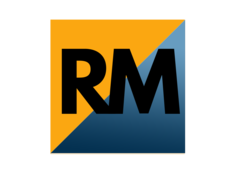There was a point in history where metallurgy was considered as a form of sorcery. After all, combining metals to create a tougher material was the closest thing to magic back then. Today, however, combining metals is a common process, let alone a thriving industry. Metallurgy is responsible for the creation of hundreds of types of alloys that now make technological advances possible.
Brass, an alloy of copper and zinc, is one of the first metals that have greatly benefited from the craft of metallurgy. With over 60 variations, it is a widely tested and utilized metal, probably present in all kinds of modern-day machines and structures. Its oldest and most popular variant is Muntz metal.
What Is Muntz Metal?
Two centuries ago, boats and ships are designed and built with an ordinary copper-plated bottom. While typical copper has an excellent anti-corrosion property, it is highly susceptible to fouling, the accumulation of unwanted materials on solid surfaces, which affect functionality and stability. As such, maintaining the exterior surface of vessels was difficult.
To address this weakness of copper, an industrialist from Birmingham named George Frederic Muntz invented a metal that can repel both living organisms and inorganic substances. He tried to increase the amount of copper and reduce the amount of zinc in the mixture to allow for the addition of a trace amount of iron. The resulting brass type is tough enough to resist even the corrosive force of seawater. This type of brass was named after him.
Composition
To better understand the unique abilities of Muntz metal, you should learn the different classifications of brass first. There are several ways to classify brasses but the most accurate is through their crystal structure.
Alpha. Brasses that contain less than 37% zinc and has a solid crystal structure with uniform composition are classified as alpha. These brasses are softer and more ductile than their counterparts. Because of this characteristic, they are easily cold worked, welded, rolled, drawn, bent or brazed.
Alpha-Beta. Add more zinc to the mixture, somewhere between 37% and 45%, and you’ll get brasses classified as alpha-beta. These brasses are harder and tougher than alpha brasses, and therefore better hot-worked by extrusion, stamping, or die-casting. Most brass materials and supplies are alpha-beta.
Beta. Brasses in this classification are the hardest because they have more than 45% zinc in the mixture. And because they are hard, they can only be hot-worked; in most cases, the temperature used is higher than when working alpha-beta brasses.
Muntz metal belongs to the alpha-beta class. This means it’s neither too hard nor too soft. Apart from being a fairly workable metal, Muntz is also prized for its other properties.
Anti-fouling – As previously mentioned, Muntz metal was originally used to improve the anti-fouling property of ship covering. The copper in Muntz metal gradually leaches, killing organisms that try to attach on its surface. This is exactly the reason why it is also used as sheathing for pier piles, as these are a common breeding ground for teredo shipworm.
Saltwater Corrosion Resistance – Saltwater corrodes most metals ten times faster than freshwater does. Therefore, the type of metal used to make boat sheathing must also be at least ten times more resistant than typical metals. Muntz metal is found to have such ability, which is why it is also used for marine applications other than sheathing.
Durability – All brasses are durable because they do not rust or corrode easily. Although they tarnish, this is just skin-deep and does not really affect the functionality of the metal. They are expected to last for many years with proper maintenance.
Muntz metal is no longer a rare material. It is available in many huge supply stores across the country. If you want to find the highest quality material, however, a reputable supplier like Rotax Metals can definitely help.
Sources:


